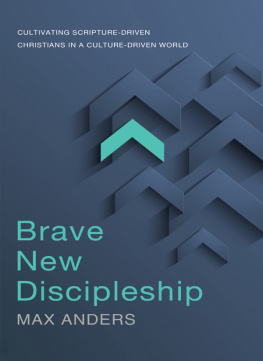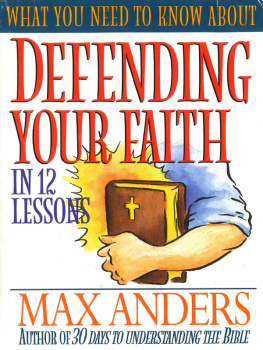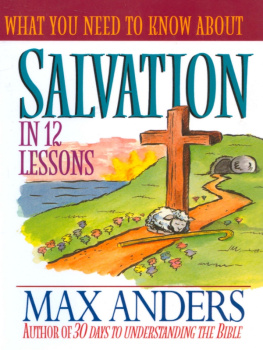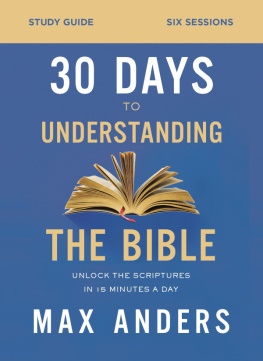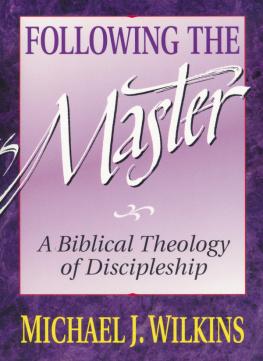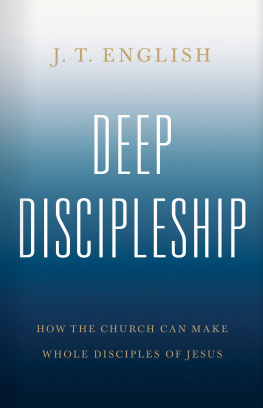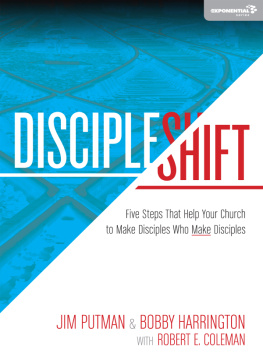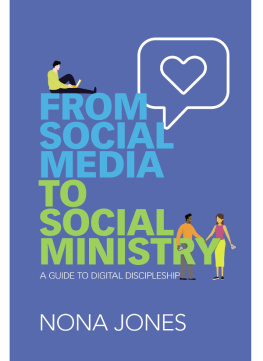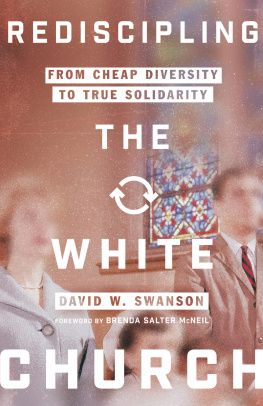
2015 by Max Anders
All rights reserved. No portion of this book may be reproduced, stored in a retrieval system, or transmitted in any form or by any meanselectronic, mechanical, photocopy, recording, scanning, or otherexcept for brief quotations in critical reviews or articles, without the prior written permission of the publisher.
Published in Nashville, Tennessee, by Thomas Nelson. Thomas Nelson is a registered trademark of HarperCollins Christian Publishing.
Author represented by Erik S. Woglemuth; Woglemuth and Associates, Inc.
Page design and layout: Crosslin Creative
Thomas Nelson titles may be purchased in bulk for educational, business, fund-raising, or sales promotional use. For information, please e-mail SpecialMarkets@ThomasNelson.com.
Unless otherwise noted, Scripture quotations are taken from the NEW AMERICAN STANDARD BIBLE, Copyright The Lockman Foundation 1960, 1962, 1963, 1968, 1971, 1972, 1973, 1975, 1977, 1995. Used by permission.
ISBN: 978-0-7180-3064-3
ISBN: 978-0-7180-3067-4 (eBook)
15 16 17 18 19 20 [RRD] 6 5 4 3 2 1
This book is dedicated to Dr. Howard Hendricks and Dr. E. William Male, two men who believed in me, and without whom this book could not have been written.
Contents
1. Whether or not you are discipling others, you can also use the principles in this book to disciple yourself. As you read about principles of discipling others, it will be easy for you to make the connection of how you would guide and accelerate your own spiritual growth by applying the principles to your own spiritual maturation process. This idea is explored more fully in the last chapter of the book, after you have had a chance to become familiar with the principles.
2. There are exercises at the end of each chapter that are designed to increase your memory, understanding, and application of the material in the chapter.
3. The exercises seem simple, and they are. But they are also important. They will deepen the learning experience significantly if they are done with care. Please avail yourself of the opportunity.
4. There are boldface words and sentences in the text. They correspond to the exercises at the end of the chapter. Notice them as you read, and it will be easier to complete the exercises.
5. If you are teaching this book, you can also use these exercises for sharing times, discussion, and assignments. This, too, will significantly increase the educational impact of the book.
T wentieth-century discipleship models will not effectively translate into twenty-first-century culture. The purpose of this book is to rethink, reimagine, and articulate a discipleship strategy equal to the demands of the new spiritual territory in which we find ourselves in the twenty-first century.
In 1948, George Orwell wrote a dystopian novel entitled 1984. In it he imagined a very unpleasant future in which everything we wanted was kept from us by a totalitarian government.
In contrast, in 1931, Aldous Huxley wrote a dystopian novel entitled Brave New World in which he imagined a very unpleasant future resulting not from things being withheld from us, but from everything being made available to us, regardless of its value. With the glut of things available, regardless of their value, culture and society began to sink to the level of the lowest appetites.
Of the two contrasting visions of the future, Huxleys is the one coming true for us in the West. A quick glance at the programs on cable television is, perhaps, the most obvious indication of this. From boundless violence to unrestrained and perverted sex, to voyeuristic explorations into unrefined and deviant lifestyles, cable television is showing us the future. It is not a pretty sight.
It is my belief that twentieth-century models of discipleship will not effectively translate widely into this Brave New World of twenty-first-century culture. Older generations look on in horror at our speed-of-light cultural deterioration, like watching a train wreck happen. But younger generations are less horrified, more ready to interpret the present as normal. Because of this, the church is in danger of being neutralized by a mind-meld with modern culture. As a result, we must create a new approach to discipleship if we are going to be able to help younger generations of Christians withstand the gravitational pull of modern culture.
This new discipleship strategy must address all areas of the Christian life. It used to be that discipleship could hit the high points of the Christian life, like a spiritual finishing school, and count on Christianized American culture to fill in the gaps. For example, fifty years ago, if you conformed to American pop culture, you did not live in violation of any of the Ten Commandments. Today, however, if you conform to American pop culture, you may frequently violate most of the Ten Commandments. As a result, not only can we not assume that Christianized American culture will fill in the gaps of anything we do not cover in our discipleship system with values that are congruent with Christianity, but rather we must assume that secularized American culture will fill in the gaps with values that are hostile to Christianity. Therefore, the church must be intentional about every single thing it wants to see happen in the life of a disciple. Nothing significant can be left to chance.
We cannot just teach the Bible. We cannot just mentor for Christlike lifestyle. We cannot just train for Christian ministry. We must do all three, and we must do them in the most effective way, with the most effective methodology. There are effective ways to teach the Bible and ineffective ways. There are effective ways to influence character, and there are ineffective ways. There are effective ways to equip people for ministry, and there are ineffective ways. We do not have the luxury of remaining entrenched in ineffective ways.
The church must:
1. match comprehensive ministry goals with
2. the most effective ministry methods and
3. implement with disciplers of the highest spiritual standards.
That is the challenge of discipleship in the twenty-first century. And that is the intent of this book, to explore and define more effective ways of discipling in a radically different world.
To begin, I want to define terms. There is no technical definition of discipleship, and so I want to define how I am using the term, so as not to miscommunicate. I define discipleship as giving a willing person the assistance necessary to grow to maturity in Christ. I take this comprehensive idea from Matthew 28:1920. Because of the comprehensive nature of this definition, the common idea of discipleshipthat of one person pouring his life into the lives of a few other individualsis not adequate. In my opinion, there is no one person who is capable of giving another person all the assistance that person will need to become mature in Christ. Therefore, discipleship is the work of the church as a whole, as I see it.
However, it is essential that individuals pour their lives into the lives of a few others. That is a vital part of discipleship. But it does not equal the whole of discipleship. Therefore, I define that activity as mentoring. That way, I do not have to use one worddiscipleshipto refer to both things.
Therefore, here are my definitions. They are not right and other definitions wrong, but they keep us on the same page.
Discipleship: giving a willing person the assistance needed to grow to maturity in Christ. (The work of the church as a whole.)
Mentoring: a more experienced Christian, through personal relationship, encouraging and coaching a less experienced Christian in growing spiritually. (The work of called and qualified individuals.)
Next page
